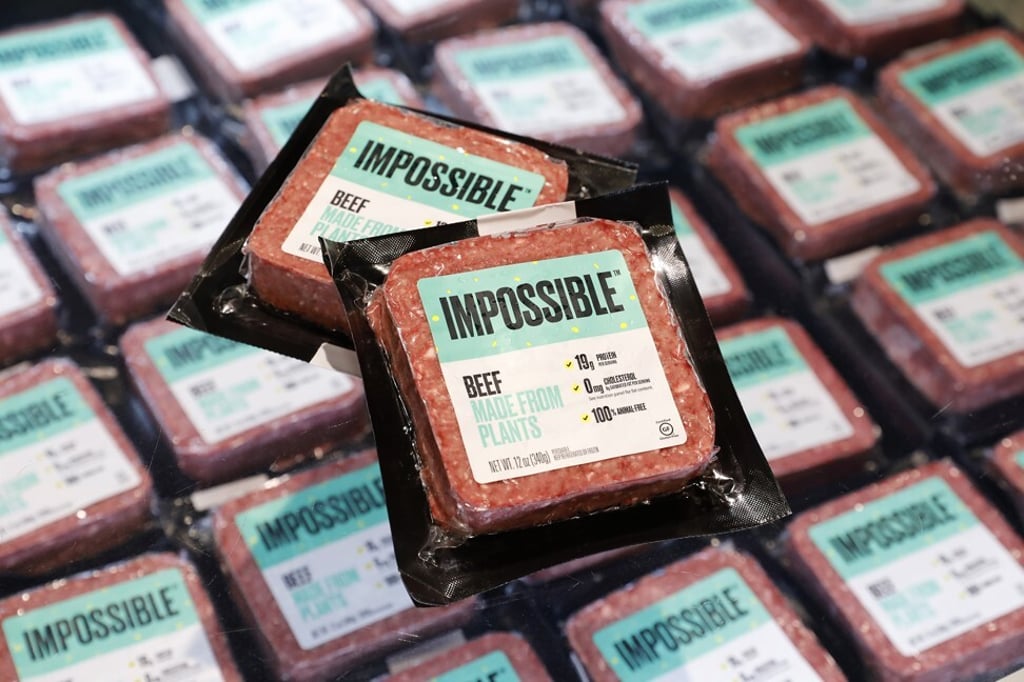Impossible Foods cuts prices of soy-based meat for the second time in four weeks to make alternative meat affordable
- An Impossible Burger patty will retail for US$5.49, while a 12-ounce burger will sell for US$6.99
- The company is encouraging 17,000 grocery stores, supermarkets and retailers in Canada, Singapore and Hong Kong to cut prices to “pass the savings to consumers as soon as possible”

An Impossible Burger patty will retail for US$5.49, while a 12-ounce burger will sell for US$6.99, according to the company, based in Redwood City, California.
The company is encouraging its network of 17,000 grocery stores, supermarkets and retailers in Canada, Singapore and Hong Kong to cut prices to “pass the savings to consumers as soon as possible”, Impossible Foods said.
The discount is the second price cut in a month by the 10-year-old company, marking a huge stride in its efforts to make the soy-based food more affordable, and encourage more consumers to enjoy the nutritional benefits and taste of animal meat, without the health effects or environmental impact.

“Our plan is to reverse global warming and halt our planet’s extinction crisis by making the food system sustainable,” said Impossible Foods’ chief executive and founder Patrick Brown. “With economies of scale, we intend to keep lowering prices until we undercut those of ground beef from cows. Today’s price cut is merely our latest – not our last.”
Impossible Burger is available at stores under the Albertsons, Kroger, Publix, Safeway, Sprouts, Target, Trader Joe’s, Walmart, Wegmans brands, and online platforms including Amazon Fresh, Walmart.com, Kroger.com, Farmstead and Imperfect Foods. Shelf prices may vary, depending on location and retailer, according to the company.